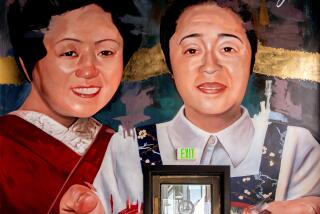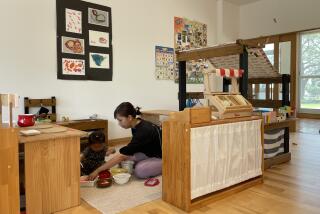Finessing Japan’s High Living Costs
- Share via
TOKYO — Endaka, the strong yen, seems to have usurped “Godzilla Versus the Sea Monster” as Japan’s favorite horror story.
The yen’s surge in value against the dollar over the last two years has left foreigners terrified at the prospect of a $40 melon, a $120 taxi ride from Tokyo’s main international airport at Narita and rents of $15,000.
But endaka, like many Japanese products, is strictly for foreign consumption only, locals and long-time foreign residents said.
“It’s not really that expensive. I don’t pay attention to the cost of living,” said Cheryl Richmond, a 25-year-old Canadian teacher of English in Tokyo.
Richmond said she earns $1,635 a month by “chatting” 40 hours a week in English with Japanese who hope to learn the language. For $326 a month she rents a sunny, quiet two-room apartment about 20 minutes by train from Shinjuku, one of Tokyo’s prime business and entertainment districts, and has managed to save an average of $320 a month.
She spends less than $6.50 a day on food despite eating out once a day.
“For lunch I buy the teishoku (daily special), which comes with soba (buckwheat noodles), or pork cutlet, pickles, miso soup, rice and tea,” Richmond said, although she has only coffee for breakfast and a sandwich for dinner.
No one argues that Tokyo is cheap, but long-time residents see no need to spend the $2,000 to $15,000 a month that foreign firms splash out to house executives in Western-style homes.
The companies feel otherwise. They say they must pay that sort of price to bring over the top people they need to back up their push into Japan’s increasingly lucrative markets.
Most Expensive City
“You can’t expect people to move from New York or Sydney and trade down. It’s not reasonable,” said a spokesman for International Business Machines, which supports Western life styles for more than 350 foreigners in Tokyo.
Tokyo is the world’s most expensive city for business travelers, according to a survey issued this month by Employment Conditions Abroad. It found that businessmen visiting Tokyo spend an average of more than $300 a day.
While businessmen have little choice but to come here, many tourists, especially those from Europe, are opting to visit sunnier and cheaper climes in Southeast Asia.
The Japan Tourist Bureau estimates that endaka caused an 11.5% drop in the number of foreign visitors to Japan last year. Those who did come tried to cut back on expenses, chiefly by curtailing shopping, it said.
To help combat fear of endaka and the slump in tourism, the Tourist Bureau has prepared a pamphlet called “Economical Travel in Japan.” It gives budget-saving tips on finding medium-priced business hotels and Japanese-style inns, cheap sushi and public baths, while providing a “revealing glimpse of Japanese in their daily lives.”
Scott Perry, a 23-year-old would-be English teacher from New Zealand, lives even more cheaply than that. He shares an unheated, berth-sized room in Okubo House, a transient hotel in Tokyo’s Shin-Okubo district, and pays only $9.80 a night.
Perry has budgeted $26 to $33 a day while he looks for work. “Normally I eat teishoku for 400 yen ($2.67), but sometimes I’ll splurge at Shakey’s, where for 550 yen ($3.67) you can eat unlimited pizza for at least two hours.”
Still, there are extras that dent the budget. “I had to spend 600 yen ($4) Wednesday to dry-clean my suit coat,” Perry said.
More to Read
Sign up for Essential California
The most important California stories and recommendations in your inbox every morning.
You may occasionally receive promotional content from the Los Angeles Times.










